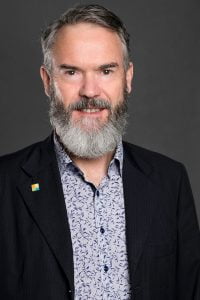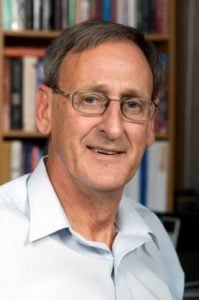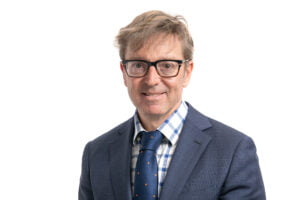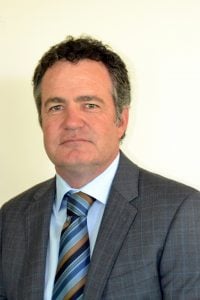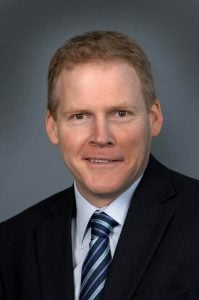Board Chair: Professor Ian Cresswell
Dr. Ian Cresswell, Adjunct Professor, School of Biological, Earth and Environmental Sciences, University of NSW, has extensive experience working in environmental science in biodiversity conservation and discovery, oceans governance, fisheries management, wildlife regulation, and protected areas. He has led major programs in CSIRO both in marine science and terrestrial and freshwater ecology. Previous to this Ian worked within the Australian Government as a Senior Executive leading oceans management, sustainable fisheries assessments, international wildlife management, as well as the Director of the Australian Biological Resources Study. Ian is also the co-Chair of the national State of the Environment 2021 report, and is a member of the Board of the Western Australian Marine Science Institute. He maintains an ongoing research interest in multiple-use management and coastal systems.
Director and Chair of the Collaboration, Leverage and Integration Committee: Dr Steve Morton
Steve is an Honorary Professorial Fellow with Charles Darwin University in Alice Springs. He was educated at the University of Melbourne before undertaking postdoctoral work at the University of California, Irvine and the University of Sydney. He worked for some years in the wet-dry tropics of the Top End with the Office of the Supervising Scientist, and then joined CSIRO in Alice Springs to work in the desert environment that has been the major focus of his ecological work. Subsequently, Dr Morton spent ten years in the leadership of CSIRO as a Chief of Division and member of the Executive Team, working from Canberra and Melbourne. After retirement from full-time employment in 2011 he returned to live in Alice Springs. From here he serves on a variety of boards and committees relating to environmental and natural resource management, and continues to think and write about ecology, mostly to do with the Australian deserts.
Director: Andrew Dolling
Andrew Dolling is the Executive Director, Science and Innovation at the Department of Energy and Economic Diversification (DEED). In this role Andrew works collaboratively with industry, government, and research and innovation entities, to enhance the State’s scientific and innovation capability and performance in order to support a strong, sustainable and diversified economy, create jobs and improve the long-term wellbeing of Western Australians.
Previously, Andrew was the Director of Economic Policy at the Department of Treasury between 2017-2022, and immediately prior to that Director of Economic Reform at the Department of Finance. Before joining the Western Australian Government, Andrew worked with the Victorian Department of Primary Industries as Director of Forestry Industries Policy, and Director of Natural Resources, Water and Climate Change Policy. He also spent 12 years as an economist with the Productivity Commission working on a range of inquiries, GTE reviews and working in the Office of Regulation Review (now the Office of Best Practice Regulation and separate to the Productivity Commission). Andrew also has experience in the finance and accounting sector having worked for MLC, PriceWaterhouse and in his own business. He has a Master of Science in Environmental Change and Management from Oxford University, and Bachelor of Economics Honours from Monash University. He is a Member of the Australian Institute of Company Directors and Finance Brokers Association of Australia.
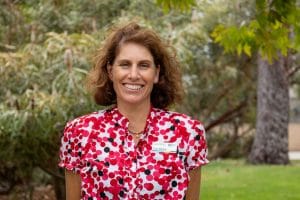
Director: Dr Fran Stanley
Dr Fran Stanley is an executive director at the Department of Biodiversity, Conservation and Attractions, which is responsible for promoting biodiversity and conservation and enriching people’s lives through sustainable management of Western Australia’s species, ecosystems, lands and attractions. Fran has worked in a range of roles undertaking conservation reserve management, marine reserve planning, policy and strategic projects, from the Pilbara to the south-west.
Director: Vern Newton
Vern’s areas of expertise include working for a number of construction material and mining companies in senior roles encompassing Operations, Logistics, Budgeting, Strategic Planning and Marketing within the Kimberley, Pilbara, South West, Goldfields and Metropolitan area of WA and Australia as a whole. He has been involved in driving sustainable policies within corporate organisations including developing Energy Management Policy for a large Australian construction materials company, which resulted in the particular company being the first sign up for the Australian Greenhouse Challenge with the Federal Government.
With Rocla, Vern engaged with research institutes to help achieve partnerships between industry and science so that a higher standard of restoration is achieved on the ground. Additionally, Vern liaises with government (both Federal & State) and regulatory bodies regarding the benefits of restoration to ensure restoration principles are a key focus for government so that development occurs in a sustainable manner and net increases in habitat begin to occur. With the acquisition of Rocla Quarry Products by Hanson Construction Materials (Australia) now Heidelberg Materials, Vern continues his work in the resource development field with Heidelberg Materials, and now also holds the role of National Property Manager.
Director: Gavin Price
Gavin served for several years as the Head of Environment for BHP Billiton’s Iron Ore operations and has extensive experience across the minerals and processing industry sectors in the fields of Environment, Health and Safety, External Affairs and Sustainable Development. Gavin brings strong operational experience in research science application in industry, including Board representation for research. Having a profession in Environmental Science, Gavin continues to actively support the development of environmental management through industry and community initiatives such as the NGO Industry Forum within the Chamber of Minerals and Energy, where early support was generated for the establishment of the WABSI.
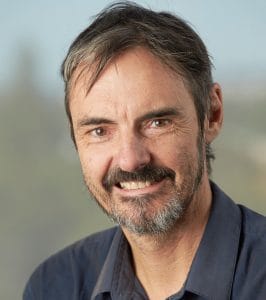
Director: Dr Brett Molony
Brett is the Science Director of the Environment Research Unit for CSIRO, based at the Indian Ocean Marine Research Centre (IOMRC) in Perth, Western Australia. Brett has more than 30 years’ experience as a marine, estuarine and freshwater researcher within Australia and Internationally .
His research interests include systems approaches to understanding pressures and trade-offs in coastal areas to assist stakeholders and decision-makers to make informed, risk-based choices. More recently, his interests have included ecological interventions in terrestrial and coastal areas to respond to risks of climate change on ecological systems. This includes how Indigenous knowledge and science, and western knowledge and science, can work together to enhance the understanding of these important systems and support Indigenous-led initiatives.

Director: Heidi Mippy
Heidi Mippy is a Noongar and Thiin-Mah Warriyangka woman with cultural ties to the South West and Upper Gascoyne regions of WA. She has extensive experience with Indigenous communities and has held roles within local government, the WA Police, Child Protection, Education and Training, and the Department of Fire and Emergency Services. She has worked across the government, not for profit and private sectors.
Heidi is a small business owner and volunteers her time to several Boards and Advisory Groups in the community and was recognised as the 2019 Aboriginal Volunteer of the Year for the City of Cockburn, 2020 Citizen of the Year for the City of Fremantle and 2022 Murdoch University Distinguished Alumni. Heidi holds a Bachelor of Arts in Community Management and Adult Education, a Graduate Certificate in Business (Leadership, Strategy & Innovation) and an Executive Masters, Leadership, Strategy, and Innovation.
Heidi is a current PhD candidate working with Biologic Nature and Community as she undertakes her research full-time. She remains involved with the ARC Training Centre for Healing Country located at Curtin University. Healing Country provides the structure and links the scientific capacity required to achieve cultural, environment, social, health and economic benefits that will enable First Nations businesses and communities to flourish. Heidi is the co-lead for the Socio-Economics Research Theme and is on the Healing Country Board.
Heidi is passionate about Noongar led restoration and economic opportunities for Noongar people through land-based activities and sees this as important in the healing, wellbeing and cultural survival of First Nations People.
